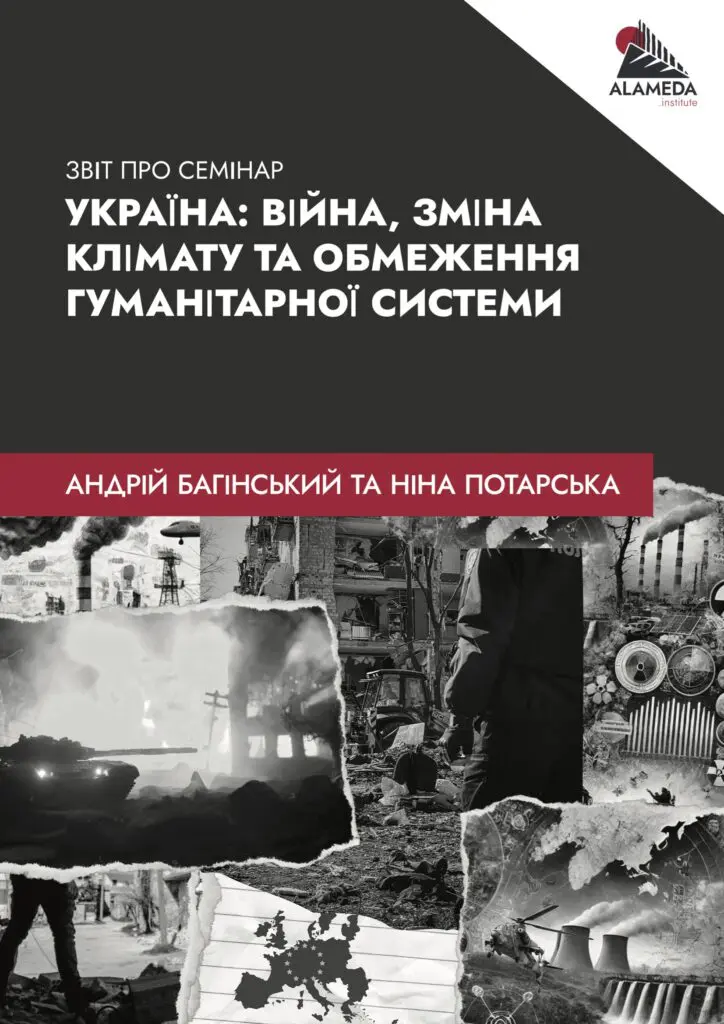Україна: війна, зміна клімату та обмеження гуманітарної системи

Війна в Україні спричинила глибоку гуманітарну та екологічну кризу, оголивши глибокий взаємозв’язок між збройним конфліктом, руйнуванням довкілля та глобальною продовольчою безпекою. У своєму останньому звіті Андрій Багінський та Ніна Потарська аналізують, як спричинені війною викиди CO₂, руйнування екосистем та порушення критично важливого сільськогосподарського виробництва створили нові фактори вразливості, що впливають на мільйони людей в Україні та за її межами. Дослідження також критикує жорсткі структури міжнародної гуманітарної допомоги, яка часто надходить із готовими рішеннями, що не можуть бути адаптовані до реалій на місцях.
Ця публікація є частиною проекту Інституту Аламеда «Межі гуманізму: Політика, криза та реформи в епоху зміни клімату». На прикладі України ми підкреслюємо нагальну потребу переосмислення гуманітарного реагування в епоху, коли кризи все більше формуються під впливом кліматичних змін і політичної нестабільності. Як гуманітарні системи можуть вийти за межі застарілих моделей і стати більш оперативними, орієнтованими на місцеві потреби та враховувати кліматичні зміни? Ознайомтеся зі звітом і долучайтеся до дискусії.

Andrii Bahinskyi and Nina Potarska
Nina Potarska is a gender expert on peacebuilding and conflict resolution. Since 2016, she has been the national coordinator of the International Women's League for Peace and Freedom in Ukraine. As part of her activities, she monitors the needs and observance of the rights of women living near the contact line, gender-based violence and conflict-related violence, gender-inclusive mediation in conflicts, and prepares reports on the observance of women's rights in the UN system. Since 2013, she has been the director of the Center for Social and Labor Research, and since 2015, she has been researching topics related to the war in Ukraine. She collects narratives and conducts research on both sides of the contact line. Nina is a research fellow at Alameda.
